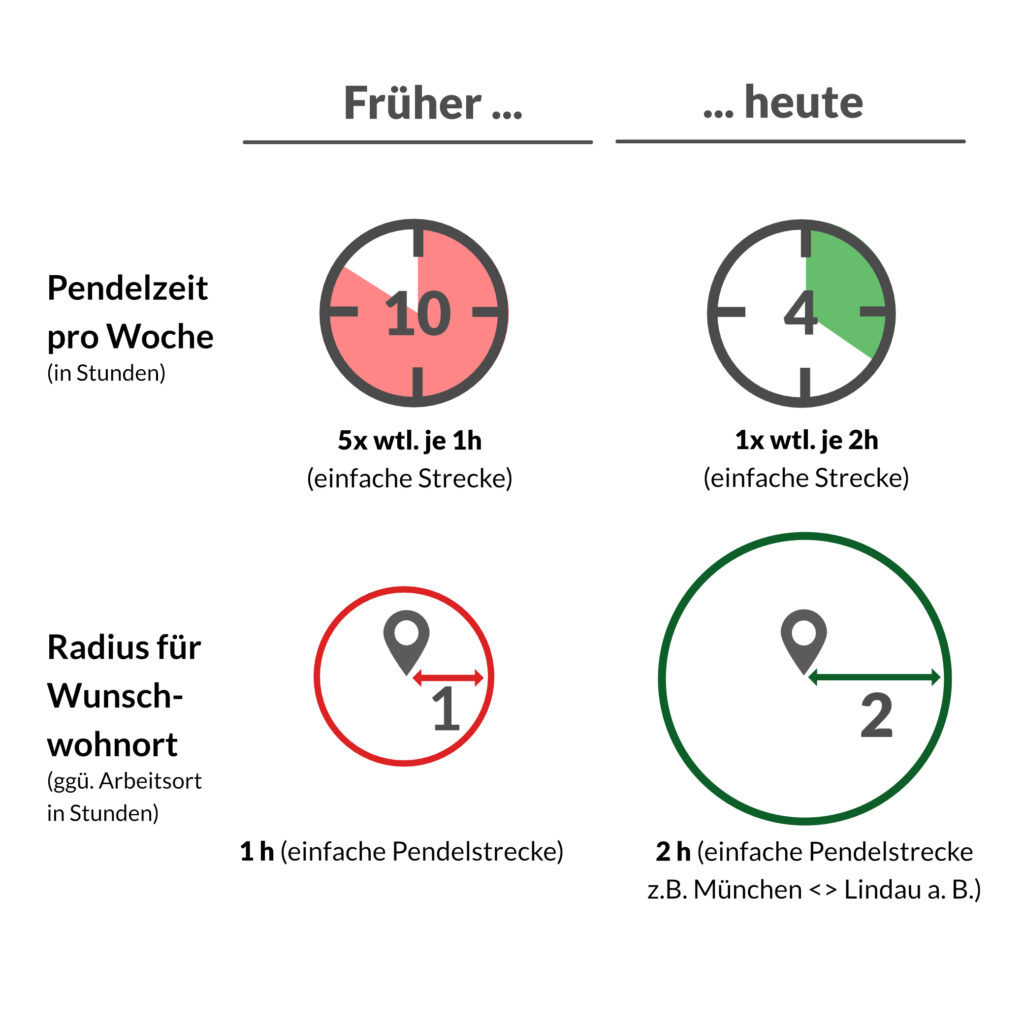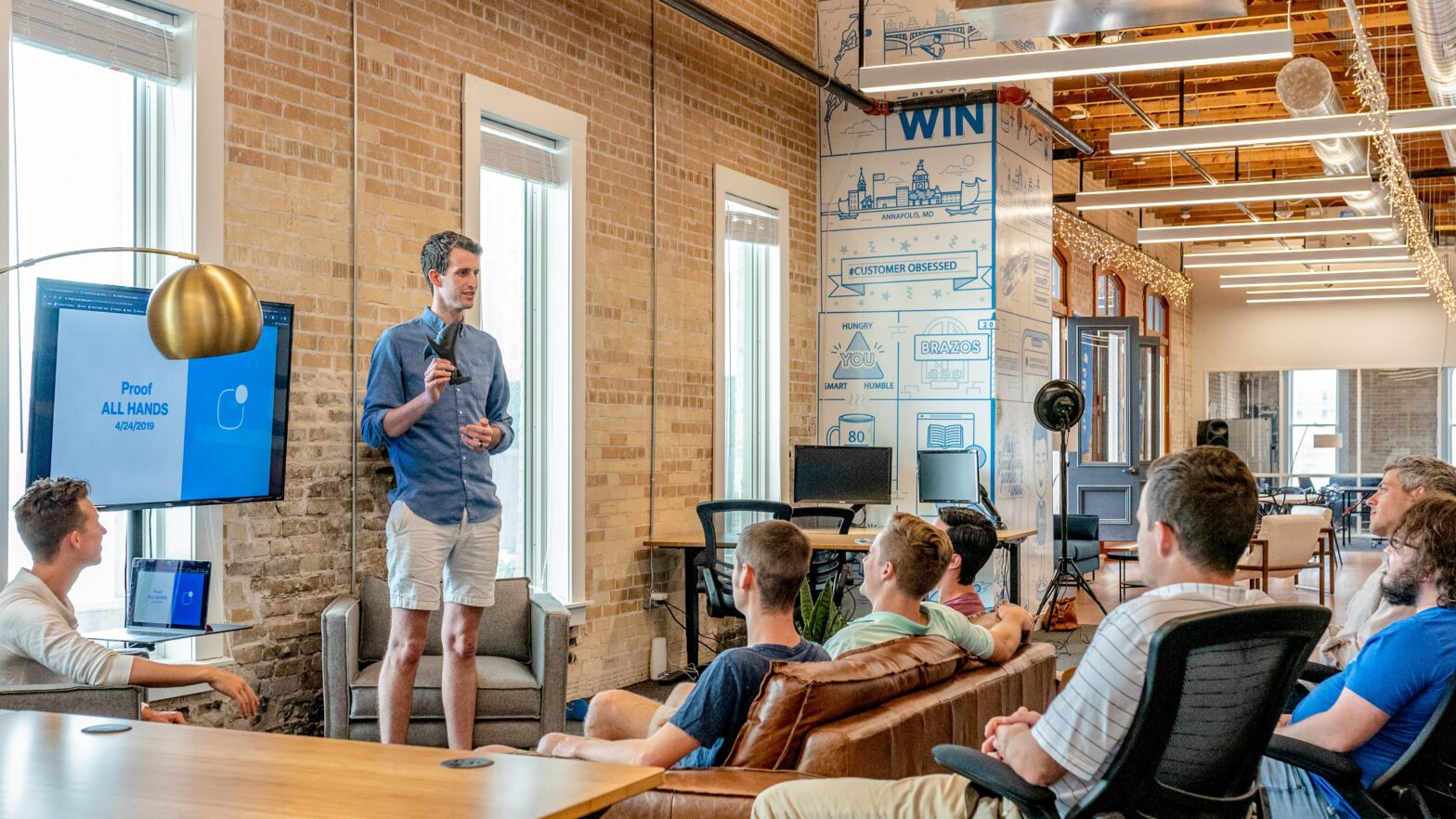The term “New Work” goes back to the American professor Frithjof Bergmann. In the 1970s, he developed his theses on the evolution from freedom of choice to freedom of action. Instead of simple wage labor, he emphasized the free development of one’s own personality as well as creativity. From this he derived the following three core values: Freedom, Self-Determination, and Community.
But what does Bergmann’s idea have to do with today’s reality? Both societal and technological change is currently underway, accelerated by the Corona pandemic.

In many companies, digitization has taken a pandemic leap of several years, if not decades. For example, videoconferencing systems were expanded and their use tested in “real-life” operations. Likewise, the possibilities for mobile working have been expanded in many companies – both from a technological point of view and through acceptance on the management floors. Dax companies are also allowing their employees to work from home to an ever greater extent, as most companies have had positive experiences during the lockdowns (see “NewWork@DAX30“).
The challenges posed by more home office use were clearly visible to workers during the lockdowns: How do I organize my workday in small apartments? One trend observed in both the U.S. and Europe in inner city locations has been the migration of workers to rural areas. This was particularly noticeable in New York and Paris.
The “digital nomad” movement represents an extreme form of mobile and location-independent work. The place of work is completely freely chosen here and is highly flexible. All they need as a work tool is a notebook and a fast Internet connection.
Even if the newly gained freedom through more home office is not lived in an extreme form as a “digital nomad”, there are also interesting models with 2-3 days home office use as a “flexhomer”. This creates new opportunities to rethink or even rethink personal living situations and commuting patterns as well. Thus, with only a few days of presence in the office, the place of residence can be chosen more freely. After all, if you only have to commute infrequently, you’re willing to travel longer distances.
One of the main advantages of having a commuting radius of > 1.5 h around metropolitan areas is the significantly lower price of real estate. A house of one’s own in the “countryside” is thus possible again for an average income.
For example, before Corona, if you had a 1h (one-way) commute in a 5-day week, you were spending 10h per week just commuting. Reduced presence in the office can significantly reduce commute time.

Let’s even think one step further: If a commute of 2 h (one way) is only made once a week, the commute time per week can be more than halved if the choice of residence is freer. With only a few overnight stays per month, a second home is usually no longer worthwhile. As an alternative, in addition to staying overnight with friends or colleagues, the use of a hotel (eg. bookable as Hotel subscription ) in the immediate vicinity of the employer .
Advantages of a commuter model with hotel subscription:
- Less commuting, more free time
- Reduction of stress instead of long commute
- The possibility to live in the place of your choice
- Reduction of the CO2 footprint through less commuting
If you want to learn more about hotel subscription, you can find more information here: www.myflexhome.de

